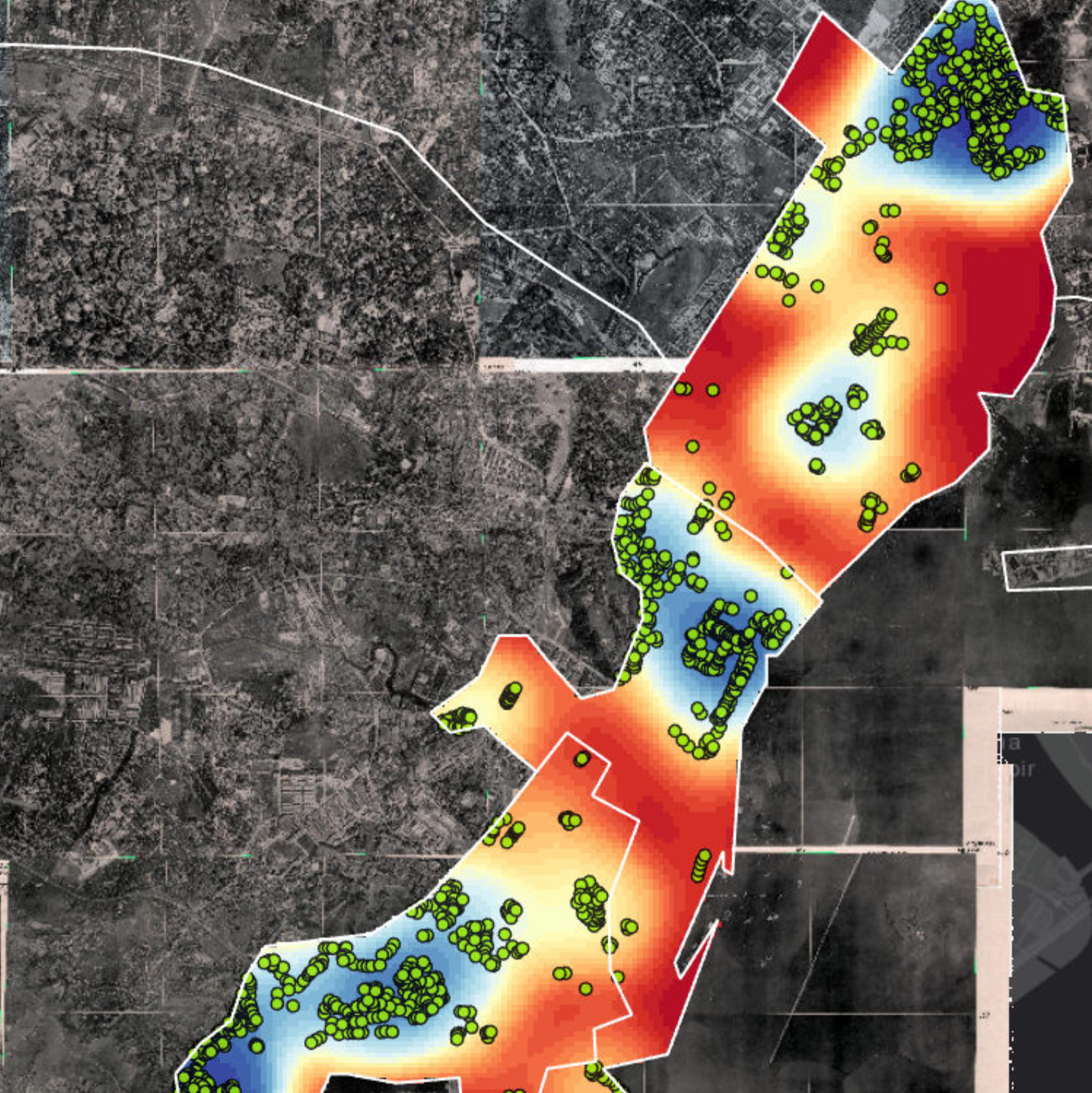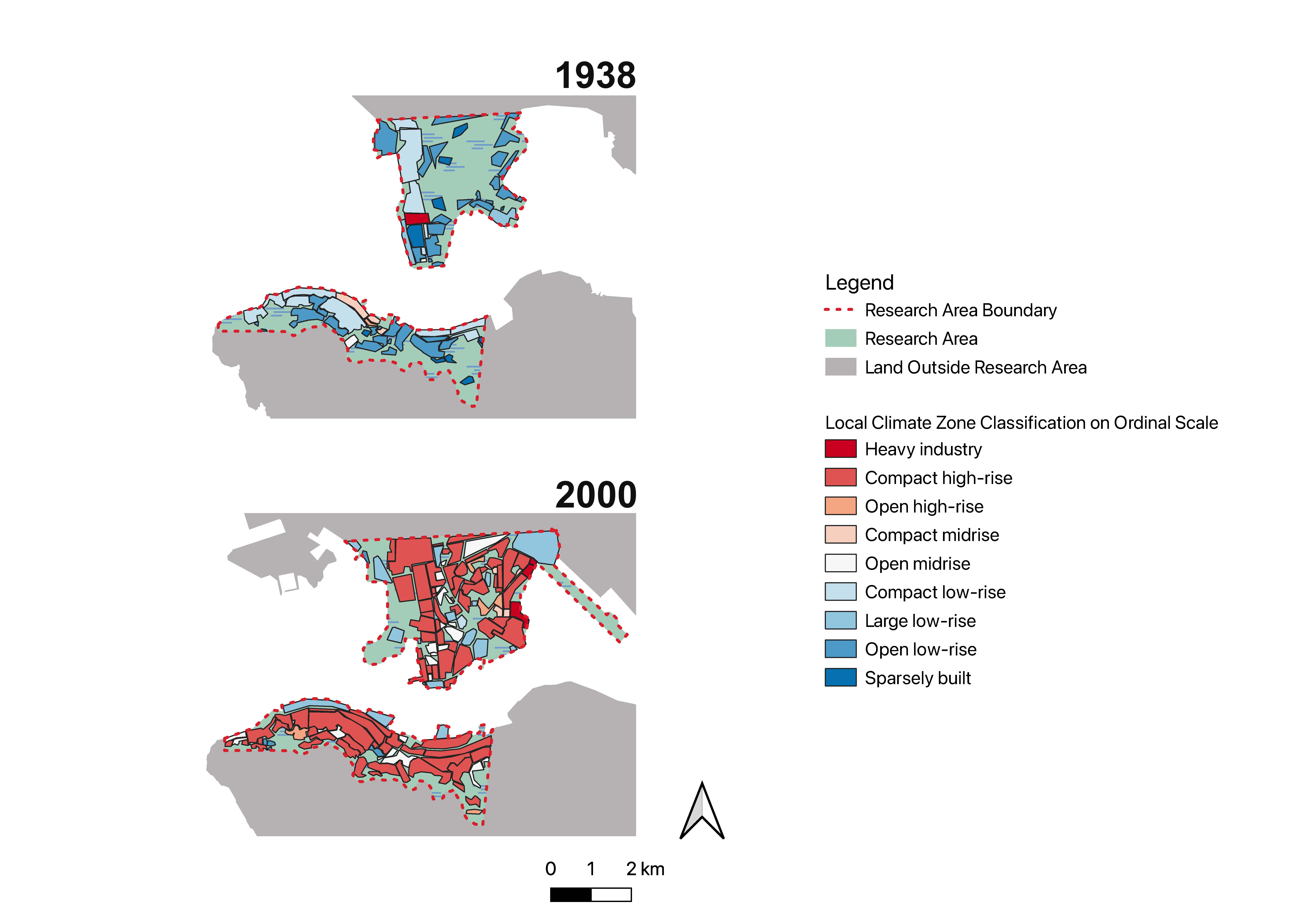Marcus Yee
PhD Student, History
Yale University
︎ About
︎ Words
︎ Contact
Research
︎ Histories of Urban Climate in South
and Southeast Asia
︎ Hong Kong Environmental History
PhD Student, History
Yale University
︎ About
︎ Words
︎ Contact
Research
︎ Histories of Urban Climate in South
and Southeast Asia
︎ Hong Kong Environmental History
Histories of Urban Climate in South and Southeast Asia
![]()
Under the threat of anthropogenic climate change, heat vulnerability has become a point of concern. The intensifying urban heat island (UHI) effect is particularly pronounced in South and Southeast Asian cities, many experiencing climates shaped by proximity to the equator.
This ongoing long-term research project aims to historicize urban heat against the legacies of colonial, international, and national developmentalist agendas across cities in the Global South, drawing on histories of climatology, urban environmental injustice, and the senses.
On top of tracing intentional or unintentional human alterations to urban microclimates, this project studies changing perceptions, technological interventions, and socio-cultural adaptations towards heat. To approach the historiographical task of writing heat of the past, this project employs quantitative methods such as historical GIS and climatological analysis, alongside archival and observational research.
Relevant research
Yee, Marcus, and Jed O. Kaplan. “Drivers of Urban Heat in Hong Kong over the Past 116 Years.” Urban Climate 46 (2022): 101308.
![]()
This project is the longest historical study (to-date) on the development of Hong Kong's urban heat, quantifying 116 years of urbanization using historical GIS, climate model simulations, and meteorological station observations. Methodologically, this paper works around the problem of a lack of suitable rural reference stations that prevents historical urban climatological analysis, while showing that localized urban heating has increased faster than rising temperatures caused by anthropogenic climate change.

Under the threat of anthropogenic climate change, heat vulnerability has become a point of concern. The intensifying urban heat island (UHI) effect is particularly pronounced in South and Southeast Asian cities, many experiencing climates shaped by proximity to the equator.
This ongoing long-term research project aims to historicize urban heat against the legacies of colonial, international, and national developmentalist agendas across cities in the Global South, drawing on histories of climatology, urban environmental injustice, and the senses.
On top of tracing intentional or unintentional human alterations to urban microclimates, this project studies changing perceptions, technological interventions, and socio-cultural adaptations towards heat. To approach the historiographical task of writing heat of the past, this project employs quantitative methods such as historical GIS and climatological analysis, alongside archival and observational research.
Relevant research
Yee, Marcus, and Jed O. Kaplan. “Drivers of Urban Heat in Hong Kong over the Past 116 Years.” Urban Climate 46 (2022): 101308.

This project is the longest historical study (to-date) on the development of Hong Kong's urban heat, quantifying 116 years of urbanization using historical GIS, climate model simulations, and meteorological station observations. Methodologically, this paper works around the problem of a lack of suitable rural reference stations that prevents historical urban climatological analysis, while showing that localized urban heating has increased faster than rising temperatures caused by anthropogenic climate change.